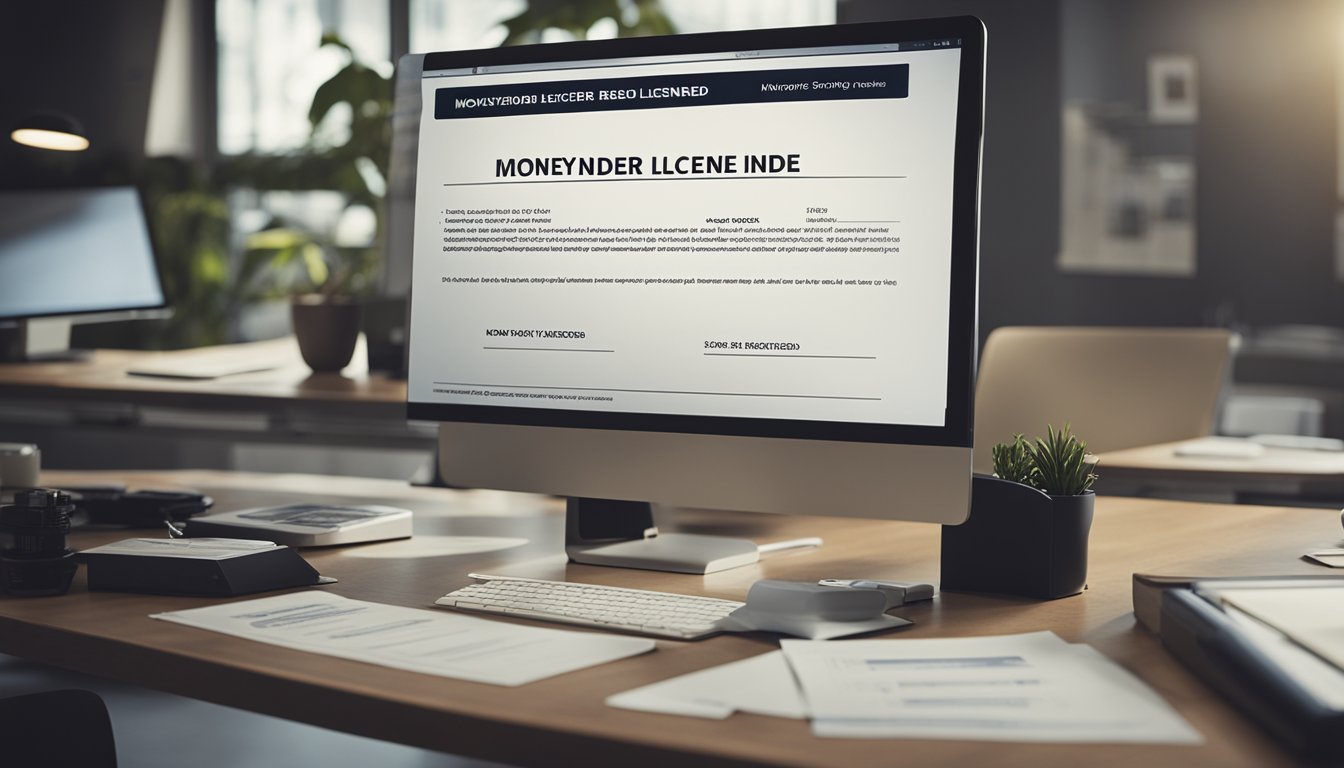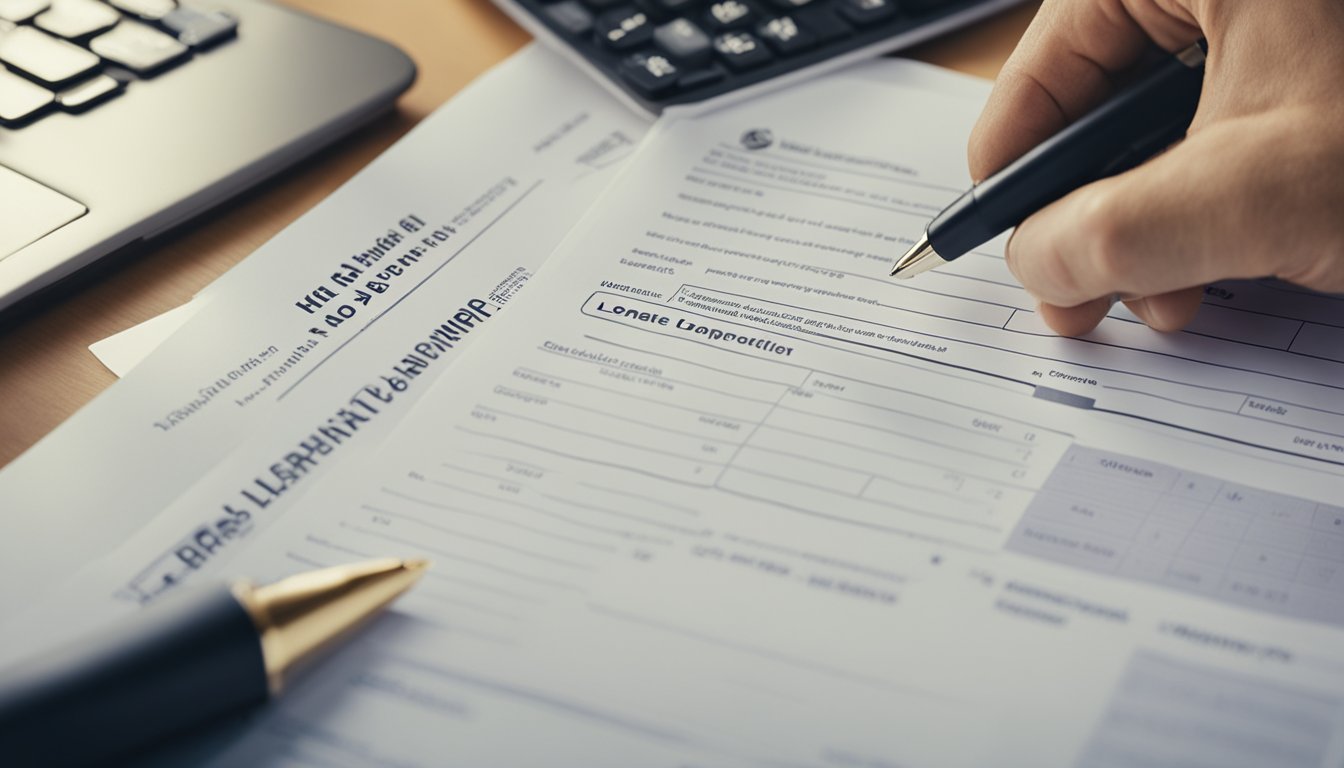If you are considering lending money in Singapore, you may be wondering whether you need a license to do so. The answer is yes, you do need a license to lend money in Singapore, and failure to obtain one can result in severe penalties. This article will provide an overview of the moneylending landscape in Singapore, explain the licensing requirements for moneylenders, and discuss the consequences of borrowing from unlicensed moneylenders.

Singapore’s moneylending industry is regulated by the Ministry of Law to ensure that borrowers are protected and that moneylenders conduct their business fairly. To operate legally, moneylenders must obtain a license from the Registry of Moneylenders. The licensing requirements are stringent and include a requirement to demonstrate financial stability, a clean criminal record, and a commitment to ethical practices. Moneylenders are also required to comply with strict rules regarding loan amounts, interest rates, and fees.
Understanding the Moneylending Landscape in Singapore

If you are considering lending money in Singapore, it is important to understand the moneylending landscape in the country. This will help you navigate the industry safely and legally.
What Constitutes Moneylending?
According to the Ministry of Law in Singapore, moneylending refers to the business of lending money to individuals or businesses, with the expectation of receiving interest or other charges in return. If you are lending money to anyone in Singapore, you are considered a moneylender, and you need to be licensed to operate legally.
The Role of the Ministry of Law and the Registry of Moneylenders
The Ministry of Law in Singapore is responsible for regulating the moneylending industry in the country. It sets out the rules and regulations that licensed moneylenders must follow, and it also oversees the licensing process for moneylenders.
The Registry of Moneylenders is a department under the Ministry of Law that maintains a list of licensed moneylenders in Singapore. If you are looking for a licensed moneylender, you can check the registry to ensure that the lender you are dealing with is licensed and operating legally.
To obtain a license to lend money in Singapore, you must go through a rigorous application process that includes background checks, financial assessments, and compliance with various regulations. Once you are licensed, you must adhere to strict rules and regulations to maintain your license and operate legally.
In conclusion, lending money in Singapore is a regulated industry, and you need to be licensed to operate legally. Understanding the moneylending landscape in Singapore, including the role of the Ministry of Law and the Registry of Moneylenders, is crucial if you want to navigate the industry safely and legally.
Licensing Requirements for Moneylenders

If you’re planning to start a money lending business in Singapore, you need to obtain a moneylender’s license from the government. The Ministry of Law is the regulatory body that oversees the licensing of moneylenders in the country. In this section, we’ll go over the eligibility criteria for license application, the application process and documentation, as well as regulatory compliance and due diligence.
Eligibility Criteria for License Application
To apply for a moneylender’s license in Singapore, you need to meet the following eligibility criteria:
- You must be at least 21 years old.
- You must not have any criminal record or pending criminal charges.
- You must not have been declared bankrupt in the past.
- You must have at least three years of experience in the money lending industry.
Application Process and Documentation
To apply for a moneylender’s license, you need to follow these steps:
- Register for a SingPass account on the official website of the Ministry of Law.
- Log in to your SingPass account and fill out the application form.
- Submit the application form along with the required documentation, which includes your personal particulars, proof of employment, and income tax returns.
- Pay the license fee, which is SGD 2,000 for new applicants and SGD 1,200 for renewal.
Regulatory Compliance and Due Diligence
Once you obtain a moneylender’s license, you need to comply with the regulatory requirements set by the Ministry of Law. This includes maintaining accurate records of all transactions, ensuring that all lending practices are fair and transparent, and conducting due diligence on borrowers to ensure their creditworthiness.
As a licensed moneylender, you’re also required to adhere to the Code of Ethics and Business Practices for Licensed Moneylenders, which outlines the ethical standards and best practices for the industry.
In summary, obtaining a moneylender’s license in Singapore is a straightforward process, but it requires you to meet certain eligibility criteria and comply with regulatory requirements. By following the guidelines set by the Ministry of Law and conducting due diligence on borrowers, you can establish a successful and ethical money lending business in the country.
Protecting Borrowers and Ensuring Fair Practices

As a lender in Singapore, it is important to adhere to the regulations set by the Moneylenders Act to protect borrowers and ensure fair practices. This section will provide an overview of some of the key aspects of the Act that you should be aware of.
Loan Agreements and Terms
When entering into a loan agreement, it is important to ensure that the terms are fair and reasonable. The Moneylenders Act requires that all loan agreements be in writing and clearly state the terms and conditions of the loan. The agreement should include details such as the loan amount, interest rate, repayment schedule, and any fees or charges associated with the loan.
Interest Rates and Fees
Under the Moneylenders Act, licensed moneylenders are only allowed to charge a maximum interest rate of 4% per month. In addition, there are limits on the fees that can be charged, including an upfront administrative fee of no more than 10% of the loan principal and a late fee of no more than $60 per month. The total borrowing cost, including interest and fees, cannot exceed 100% of the original loan amount.
Protection Against Unfair Practices
The Moneylenders Act provides borrowers with protection against unfair practices by licensed moneylenders. For example, licensed moneylenders are not allowed to use abusive language or threaten borrowers in any way. They are also not allowed to retain any original documents such as identification cards or passports.
If you feel that a licensed moneylender has engaged in unfair practices, you can file a complaint with the Registry of Moneylenders. The Registry has the power to investigate and take action against licensed moneylenders who violate the provisions of the Moneylenders Act.
By following the regulations set out in the Moneylenders Act, you can protect borrowers and ensure fair practices in the lending industry.
Types of Loans Offered by Licensed Moneylenders

If you are facing a financial need, licensed moneylenders in Singapore can offer you various types of loans to help you out. Here are some of the most common types of loans that you can get from licensed moneylenders:
Secured vs. Unsecured Loans
Licensed moneylenders in Singapore offer both secured and unsecured loans. Secured loans require you to put up collateral, such as your property, as security for the loan. In contrast, unsecured loans do not require any collateral. However, unsecured loans usually come with higher interest rates compared to secured loans, as they are considered higher risk.
Personal Loans and Emergency Funding
Personal loans are a popular type of loan offered by licensed moneylenders in Singapore. They are designed to help you meet your financial needs, whether it’s for home renovation, medical expenses, or other personal reasons. Personal loans usually have a fixed interest rate and repayment period.
Emergency funding is another type of loan that licensed moneylenders offer. These loans are designed to help you cover unexpected expenses, such as medical bills or car repairs. Emergency loans usually have a shorter repayment period compared to personal loans, and they may come with higher interest rates.
Overall, licensed moneylenders in Singapore offer a variety of types of loans to help you meet your financial needs. Whether you need a personal loan or emergency funding, you can find a licensed moneylender that can help you out. Just make sure to do your research and choose a reputable and licensed moneylender that offers fair and transparent terms.
Consequences of Borrowing from Unlicensed Moneylenders

If you’re considering borrowing money, it’s important to know that borrowing from unlicensed moneylenders or loan sharks can have severe consequences. In this section, we’ll discuss the dangers of borrowing from unlicensed moneylenders and what you can do to protect yourself.
Identifying Unlicensed Moneylenders and Loan Sharks
Unlicensed moneylenders, also known as loan sharks or Ah Longs, are individuals or entities that lend money illegally without a license. They often target vulnerable individuals who are in desperate need of money and charge exorbitant interest rates, making it difficult for borrowers to repay the loan.
It’s important to be able to identify unlicensed moneylenders and loan sharks to avoid falling prey to their illegal activities. Some signs of unlicensed moneylenders include:
- Offering loans without proper documentation or contracts
- Refusing to provide a loan agreement or repayment schedule
- Using threatening or violent behaviour to collect debt
- Charging high interest rates and hidden fees
- Advertising on illegal channels such as text messages or phone calls
Legal Ramifications and Reporting Illegal Activities
Borrowing from unlicensed moneylenders can have serious legal ramifications. If you default on your loan payments, unlicensed moneylenders may use illegal tactics such as harassment, violence, or even blackmail to collect the debt. This can put your safety and that of your loved ones at risk.
In Singapore, it is illegal to borrow from unlicensed moneylenders, and you can face fines of up to $300,000, imprisonment of up to four years, or both. If you suspect that you’re dealing with an unlicensed moneylender, you should report them to the relevant authorities such as the Singapore Police Force or the Ministry of Law.
In conclusion, borrowing from unlicensed moneylenders or loan sharks can have severe consequences. Always make sure to borrow from licensed moneylenders and read the loan agreement carefully before signing it. If you suspect that you’re dealing with an unlicensed moneylender, report them to the relevant authorities immediately.
Loan Application and Approval Process

If you’re considering borrowing money from a licensed moneylender in Singapore, you need to know the loan application and approval process. Here’s what you need to do:
Assessing Eligibility and Financial Need
Before applying for a loan, you need to assess your eligibility and financial need. You can borrow up to a certain amount based on your income. The maximum amount you can borrow depends on your income and whether you have any outstanding debts.
Understanding the Application Steps and Required Paperwork
Once you’ve assessed your eligibility and financial need, you can proceed with the loan application process. You’ll need to fill out an application form and submit it to the moneylender. The application form will ask for personal information, including your name, address, and contact details.
You’ll also need to provide supporting documents, such as proof of income, employment, and residency. The moneylender will use these documents to assess your creditworthiness and determine if you’re eligible for a loan.
After submitting your application and supporting documents, the moneylender will review your application and determine if you’re eligible for a loan. If your application is approved, you’ll receive a loan approval letter.
Once you receive the loan approval letter, you’ll need to sign the loan agreement and provide any additional paperwork required by the moneylender. After the paperwork is complete, the moneylender will disburse the loan amount to you.
Overall, the loan application and approval process from a licensed moneylender is straightforward and simple. Just make sure you assess your eligibility and financial need before applying, and provide all the required paperwork and supporting documents to avoid any delays in loan approval.
Financial Education and Borrowing Responsibly

As you consider taking out a loan from a licensed moneylender, it is important to evaluate your personal financial status to determine whether or not you can afford to repay the loan. Be honest with yourself about your financial need and your annual income. Borrow only what you need and can afford to repay, and avoid borrowing more than you need.
Evaluating Personal Financial Status
Before borrowing from a licensed moneylender, it is important to assess your financial situation. This includes evaluating your income, expenses, and debts. You should also consider your future financial goals and how taking out a loan will impact your ability to achieve them. By understanding your financial situation, you can make informed decisions about borrowing and avoid taking on debt that you cannot afford to repay.
Alternatives to Moneylenders and Seeking Professional Advice
If you are in need of financial assistance, there may be alternatives to borrowing from a licensed moneylender. Traditional banks and other financial institutions may offer loans with more favourable terms and interest rates. You can also seek professional advice from a financial planner or credit counsellor to help you better understand your options and make informed decisions about borrowing.
When considering borrowing from a licensed moneylender, it is important to choose a lender that operates with professionalism and transparency. Look for a lender that is licensed by the Ministry of Law and that provides clear information about their fees, interest rates, and repayment terms. By borrowing responsibly, you can avoid falling into debt and achieve your financial goals.
Rights and Responsibilities of Borrowers

As a borrower, it is important to understand your rights and responsibilities when borrowing money from a licensed moneylender in Singapore. Here are some key things you should know:
Understanding the Loan Agreement
When you borrow money from a licensed moneylender, you will be required to sign a loan agreement. This agreement will outline the terms and conditions of the loan, including the loan amount, interest rate, repayment period, and any other fees or charges that may apply. It is important to read and understand the loan agreement before signing it, as this will help you avoid any misunderstandings or disputes later on.
The loan agreement should also include a statement of account, which will show you how much you have borrowed, how much you have repaid, and how much you still owe. Make sure you keep a copy of this statement for your records.
Dealing with Defaults and Disputes
If you are unable to make your loan repayments on time, you may default on your loan. If this happens, the moneylender may take legal action against you to recover the outstanding amount. This can include taking you to court or engaging a debt collection agency.
If you are having difficulty repaying your loan, it is important to contact the moneylender as soon as possible to discuss your options. They may be able to offer you a repayment plan or other solutions to help you get back on track.
If you have a dispute with the moneylender, you should first try to resolve it directly with them. If you are unable to do so, you can file a complaint with the Ministry of Law. They will investigate your complaint and take appropriate action if necessary.
Remember, borrowing money is a serious responsibility. Make sure you understand the terms and conditions of your loan agreement, and always make your repayments on time to avoid defaulting.
Additional Considerations for Foreign Borrowers

If you are a foreigner looking to borrow money in Singapore, there are some additional considerations you should keep in mind.
Eligibility and Loan Terms for Non-Residents
Foreigners are eligible to borrow money from licensed moneylenders in Singapore, but the loan terms may be different from those offered to Singapore citizens or permanent residents. For example, the maximum loan amount for foreigners may be lower and the interest rates may be higher. Additionally, some licensed moneylenders may have specific requirements for foreign borrowers, such as a higher minimum income or a longer period of employment.
Required Documentation for Foreigners
When borrowing from a licensed moneylender in Singapore as a foreigner, you will need to provide some additional documentation. In addition to your personal ID documents, such as your passport, you may be required to provide proof of employment or income, such as your employment pass or work permit. You may also need to provide additional documentation, such as bank statements or proof of address.
It is important to note that some licensed moneylenders may have different requirements for foreign borrowers, so it is important to check with the lender directly to ensure that you have all the necessary documentation.
Overall, while borrowing money as a foreigner in Singapore may come with some additional considerations, it is still possible to obtain a loan from licensed moneylenders. By ensuring that you have all the necessary documentation and understanding the loan terms, you can make an informed decision about borrowing money to meet your financial needs.
Navigating Online Resources and Government Support

If you are considering starting a money lending business in Singapore, it is important to make use of official online platforms and government support to ensure that you comply with all the necessary regulations and requirements.
Utilising Official Online Platforms
The Ministry of Law and the Registry of Moneylenders have official websites that provide valuable information about the money lending industry in Singapore. These websites contain information about the licensing process, the rules and regulations that govern money lending, and a list of licensed moneylenders in Singapore.
When searching for information online, it is important to look for websites that use the HTTPS protocol and have a lock icon in the address bar. This indicates that the website is secure and that any information you provide will be kept confidential.
Government Agencies and Financial Assistance
In addition to the official websites, there are also government agencies that provide financial assistance and support to small businesses, including money lending businesses. These agencies include Enterprise Singapore, the Infocomm Media Development Authority, and the Monetary Authority of Singapore.
Enterprise Singapore provides funding and support to help small businesses grow and expand. The Infocomm Media Development Authority provides grants and support to businesses that are developing innovative products and services. The Monetary Authority of Singapore provides regulatory oversight and support to financial institutions, including moneylenders.
By making use of these resources and support services, you can ensure that your money lending business is compliant with all the necessary regulations and requirements, and that you have the financial support you need to grow and succeed.
Frequently Asked Questions

How exhilarating is it to discover the maximum amount you can borrow from a licensed moneylender?
You’ll be thrilled to know that licensed moneylenders in Singapore can lend up to six times your monthly salary. This means that if you earn $3,000 a month, you can borrow up to $18,000 from a licensed moneylender. Keep in mind that the maximum amount you can borrow also depends on your credit score and other factors.
What thrilling changes have been made to the rules for licensed moneylenders recently?
Recently, the Ministry of Law has made several changes to the rules for licensed moneylenders in Singapore. For instance, licensed moneylenders can no longer advertise their services through SMS, phone calls, or online platforms. Additionally, licensed moneylenders are now required to provide a loan contract in a language that the borrower understands.
Can you feel the buzz when finding out if a company can lend money without a licence?
It’s important to note that lending money without a licence is illegal in Singapore. If you’re unsure whether a company is licensed or not, you can check the Ministry of Law’s list of licensed moneylenders in Singapore here.
Isn’t it electrifying to learn about the legalities of money lending in Singapore?
Yes, it is! In Singapore, licensed moneylenders are regulated by the Ministry of Law and must adhere to the Moneylenders Act. This act outlines the rules and regulations that licensed moneylenders must follow when lending money to borrowers.
What are the sparkling new updates to the Moneylenders Act that everyone’s talking about?
The Moneylenders Act was recently updated to provide better protection for borrowers. For instance, licensed moneylenders are now required to provide a statement of account to borrowers, which shows the amount of principal and interest paid on the loan. Additionally, licensed moneylenders are now required to obtain a borrower’s consent before collecting or disclosing their personal information.
How can one get a rush from understanding the process to legally lend money in Singapore?
If you’re interested in legally lending money in Singapore, you’ll need to obtain a moneylending licence from the Ministry of Law. To do so, you’ll need to meet certain eligibility criteria, such as having a minimum paid-up capital of $100,000 and a physical office in Singapore. You’ll also need to pass a fit and proper test and meet other requirements outlined by the Ministry of Law.

